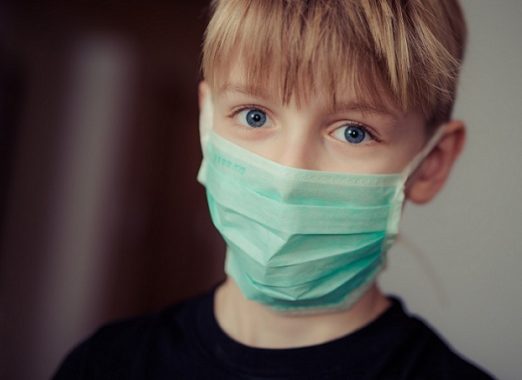Coronavirus - How to Reduce Anxiety in Your Child

It is a fact that many of us are genuinely concerned about Coronavirus – this is normal and understandable.
Many of our children are worried too, and their worry increases when they see we are anxious. This is because children look to us to feel safe. When parents or teachers act scared (and it is natural to be scared), children pick up on that fear.
Often, in a well-meaning attempt to prevent children from feeling scared, parents will ‘’play down’ the situation or worse, dismiss the child’s anxiety. Doing this, however well-meaning the intention, will cause a large spike in the child’s anxiety.
Following a dismissal or denial of their fears, children often feel totally unable to share their anxieties in the future. This invariably leads to greater misery and occasionally longer lasting problems. The good news is this can easily be prevented.
These simple tips will help you explain to your child the reality of the Coronavirus, and reduce their fear level.
For children with autism, a longer period of explaining will be necessary. It is a good idea to develop a social story to illustrate the information that you are trying to get across.
Find out exactly what they know about Coronavirus
Children are sponges – they hear the news and they see the front page of newspapers. What they don’t know, they often make up. It is important that you ask them exactly what they know about the Coronavirus. School playgrounds are awash with information – much of the information is wrong, exaggerated and concerning.
Checking out what they think they know is the first step to reducing their anxiety level.
Age-appropriate honesty is best
It is really useful that you explain to your child the facts as we know them, but at a level that is appropriate to their age. Tell them that the virus started a very long way from home in Wuhan, China. Explain that the virus has made many people sick; hiding the truth usually backfires.
Say that the virus has spread so quickly because China is a very populated area with crowded cities and transport systems. You can explain the concept of close contact and how disease spreads. Do this in an age-appropriate and matter-of-fact way, and stress that the UK and Ireland are many thousands of miles away from China and separated by oceans.
It is important to say that there are cases in other countries and in the UK (remember the honesty bit) but tell them that doctors in the UK and Ireland are highly trained and very well prepared to deal with the cases that have or may have entered the country.
If kids are old enough, explain how intensive care works. Talk about Hazmat suits and how they work. This normalises a scary concept and develops a ‘peg’ on which to hang this and further updating knowledge.
Help them feel in control
Tell them that the virus is really low risk to them. Do emphasise the need for good hand hygiene and robust cough and sneeze discipline. Children also feel better when they feel a little more in control. By engaging in actions that are helpful, they will feel empowered rather than useless and out of control.
If you provide this information in a ‘matter of fact’ way, children will not be so alarmed. They will know you that you feel in control (even if you don’t feel that way).
It’s important to say that people who are weak, unwell or both are more at risk. Do stress that doctors and nurses have hospital beds ready to help people breathe if breathing becomes hard for them, and that a hospital has been specially built for patients in China. You can say that some people who are already weak may die, but that the children around you are strong and that they live very many miles away from any cases.
What you are trying to do is ensure that children have good information, give them perspective and above all let them realise the adults are dealing with it. Always provide the worst part of the story first, followed by the optimistic part.
Children panic when they see us panic
However scared you may be, and most of us are, try to speak in factual terms rather than emotional terms. Use the same voice that you would use when you say “dinner’s ready” – just matter-of-fact.
If you child persists with questions, calmly continue the conversation in an age-appropriate way. Remind them we can take steps to stay in control, be sensible with hygiene, and keep as healthy as possible, and that they don’t need to wear face masks.
Encourage autonomy
It is really important to let your child know that they too can prevent any spread of the virus. Tell them about hand washing for hygiene, and teach them to sing ‘Happy Birthday’ twice while hand washing. Tell them about covering their mouth when they cough and sneeze into the inside of the elbow if no tissue is available.
These things make them feel in control, which ultimately reduces fear. They’re also useful precautions in a normal cold and flu season.
Information for Teachers on Coronavirus
It is crucial for the psychological health of the children that they all have an age appropriate understanding of Coronavirus. This needs to be covered in school.
We recommend the information is conveyed by a form teacher during registration, and it can be adapted according to the students’ ages. Time should be given for children to ask questions.
Written by Dr Chrissie Tizzard, Chartered Consultant Psychologist, PsychD, BSc, MSc, C.Psychol, C.Sci, AFBPS. Dr Tizzard is the Clinical Director of Christine Tizzard Psychology (ctpsy.co.uk) and Lighthouse Psychology Ireland.